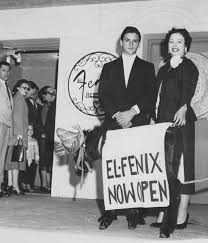Our Tex-Mex Story
Our Tex-Mex Story | The Jalapeno Grille
At The Jalapeno Grille, our journey began with a simple but heartfelt vision: to create a dining space where families, friends, and neighbors could gather around the table and share the bold, vibrant flavors of Tex-Mex cuisine. Our story is one of tradition, passion, and the joy of bringing people together through food.
Roots in Flavor and Family
Tex-Mex cuisine has always been about more than just recipes—it’s about heritage, culture, and the fusion of flavors that tell a story with every bite. The Jalapeno Grille was born from the idea of blending classic Mexican traditions with the hearty tastes of Texas cooking. From our grandmother’s homemade salsa recipes to the smoky richness of mesquite-grilled meats, every dish reflects a piece of history passed down through generations.
Family dining is at the heart of who we are. When you step into The Jalapeno Grille, you’ll notice long tables meant for sharing, laughter filling the room, and plates made to be enjoyed together. For us, Tex-Mex is not just food—it’s a way of connecting people, honoring roots, and creating new traditions at every meal.
The Craft of Tex-Mex Cooking
Our kitchen is where passion meets authenticity. Each dish at The Jalapeno Grille is crafted with care, using fresh, locally sourced ingredients and time-honored cooking methods. We slow-cook our meats to perfection, hand-roll tortillas daily, and spice every recipe with a blend of herbs and peppers that bring out that signature Tex-Mex kick.
From sizzling fajitas and cheesy enchiladas to crispy tacos and hearty chili con carne, our menu celebrates the rich diversity of Tex-Mex cooking. And of course, we wouldn’t be The Jalapeno Grille without our famous jalapeños—whether they’re roasted, stuffed, or mixed into our signature sauces, they add the fiery personality that defines us.
More Than a Meal, It’s an Experience
Dining at The Jalapeno Grille isn’t just about satisfying hunger—it’s about enjoying the experience of Tex-Mex culture. Our lively atmosphere, colorful décor, and warm hospitality make every visit feel like a celebration. We believe food tastes better when it’s shared, so we encourage big portions, family-style plates, and festive gatherings.
We’ve hosted countless birthdays, anniversaries, and neighborhood get-togethers, and every story adds to the legacy of our restaurant. When guests return, bringing their children and grandchildren, we are reminded that The Jalapeno Grille is more than a restaurant—it’s part of the community’s shared story.
Carrying the Tradition Forward
While we are deeply rooted in tradition, we also embrace innovation. Our chefs are constantly experimenting with new flavors, seasonal specials, and creative twists on Tex-Mex classics. From modern takes on tacos to health-conscious options that maintain the bold Tex-Mex taste, we aim to keep our menu exciting for every generation of diners.
We are also committed to sustainability and supporting local farmers, ensuring that our ingredients are as fresh and ethical as they are flavorful. By honoring both tradition and responsibility, The Jalapeno Grille continues to evolve while staying true to its roots.
Our Promise to You
The Jalapeno Grille is more than a place to eat—it’s a place to belong. Every dish tells a part of our story, but it also becomes part of yours. Whether you’re stopping by for a quick lunch, bringing the family for dinner, or celebrating life’s milestones, we promise to serve food made with love, warmth, and the unmistakable spirit of Tex-Mex.
